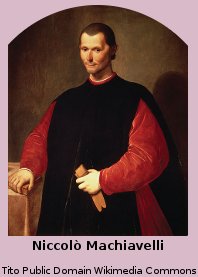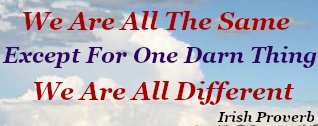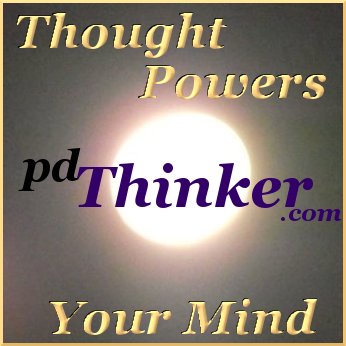Human Intelligence
A Force Well Worth Defending
Part 10 - Part 9
Human Intelligence Engenders Hope For The Future
Human Intelligence has fought a constant, tenacious battle against greed and ignorance from the time Homo Habilis entertained the first Creative Thought we are aware of.
Subsequent to the weakening, and inevitable collapse, of the Roman Empire around AD1000, arduously wrought Intellectual Accomplishments of the previous fifteen hundred years were jeopardized by greed and ignorance.
For
almost one thousand years greed and ignorance held the balance of
power. An oppressive period of Humanities History that a significant
number of Human Beings are still suffering.
Approaching seven hundred years ago, the Renaissance endeavored to address this perennial impediment to Human progress. Setting in motion a valiant shared attempt by brilliant minds to reinstate Civility, Culture, Learning, and Deep Thinking. A way of living that showcases the abandoned Creative Potential, of Humanity, camouflaged by Humanities unnecessary, mostly self imposed, struggles.
Against each other.
Early
Renaissance participants possessed the foresight to seek, reestablish,
and preserve, as much of what they could retrieve of the Intellectual
Accomplishments of the inhabitants of Classical Antiquity.
Consider for a moment the challenges presented by such a huge undertaking. At this point in time, all the material components of Classical Antiquity were around seven hundred years old. Unvalued, neglected and dilapidated. The Spiritual component of Humanity, although no less a challenge to manipulate, is time independent.
The Initiator
Recognized as one of the first Humanists and widely known as a man of letters, Italian born Francesco Petrarca (1304-1374) could be considered the initiator of the Renaissance in the mid 14th century.

Beginning with his passion for reading the Classics he went on to found a movement that revived the worthy values of Classical Learning.
It
could also be considered that this man was instrumental in saving what
evidence we have today of this stimulating period in Human history.
A universal theme that we can recognize throughout Human affairs, is the Reality that a thing begins in the mind of one person.
Ralph Waldo Emerson captures this perception perfectly, With his keen observation that - An Institution is the lengthened shadow of one man.
Emerson's
reflective insight describes Petrarca's role in initiating the
Renaissance, accurately. Petrarca was the trailblazer, other Great Minds
followed in his footsteps.
Like Minds
Over the course of time,
following the influential activities of figures of the caliber of Dutch
born Catholic Priest and Humanist Desiderius Erasmus, (1466-1536) and
Erasmus's German born counterpart, Catholic Priest and Reformer, Martin
Luther, (1483-1546) Humanity was being compelled to examine the path it
was trekking. Whilst these two Great Minds also cast long shadows,
Gutenberg's Printing Press was flexing it's dissemination muscles and
played a major role in spreading a wave of new Thinking.
Individuals
were being vicariously challenged to contemplate on how they were
leading their lives. Encouraging individuals to do their own Thinking
sent shock-waves all the way to the Vatican, and initiated the
Protestant Reformation.
Later in his life, in a paradoxical turn of Undisciplined Thinking, Martin Luther allowed himself to stray from the path he espoused. In both the Moral and the Intellectual sense.

Despite Luther's baffling decline and fall from moral and intellectual grace, to this author's mind it would appear the behavioral advances and insights towards building a more equitable and inclusive Society, gained during the Renaissance and Enlightenment Ages, coupled with the Principles and values of Classical Antiquity, remain quite intact.
These Principles and values are continuing their
role, as the face of Humanism, in our current Age administering their
desirable influence as the foundation of a Work In Progress.
That Work In Progress is nothing less than Expansion of the Human Mind. Your mind and my mind. This is as it should be.
Bearing responsibility as the Foundation Stone of Equitable Human behavior, this Philosophy of Humanism requires refining and polishing before it can be considered an ideal platform on which to perform all Human interaction.
Nevertheless, that ideal platform structure, can,
and, if we are to attain an equitable Society, must, be reached. Even
then, we will find it can be developed further. We know not the limits
of this fascinating instrument that provides Humanity with the capacity
to solve problems of any magnitude.
A significant element of the Renaissance was the laudable attempt to educate the population, not merely in scholarly learning, but most importantly, in how to get along together.
Wise application of our Human intelligence, via practicing the influential Principles contained within the Philosophy of Personal Development, has always offered the means to get along.
When
Humanity can get along together, on purpose, then Humanism will have
attained that lofty goal of being an adequate platform on which to found
further, advanced, behavioral progress.
Widespread Recognition that this is indeed the case, is the key to constructing a Prosperous, Peaceful, Satisfying future.
Enormous Opportunity Rejected
Even a cursory glance around World wide affairs, pausing now and then to take note of the state of our Relationships, would suggest we have quite some way to go before we reach equanimity, so essential to attaining equality.
We know Equanimity as that composed and patient State Of Mind that is essential to Conflict Resolution. A calm Mind is essential to Intelligent Thought.

Not a lot has changed - behavior-wise - since the advent of the Printing Press presented Humanity with the enormous opportunity to purposely Cooperate, and Collaborate, their way to the satisfying future mentioned above.
Johannes Gutenberg's timely invention of the Printing Press was instrumental in the wide dissemination of information.
The printing press presented we Humans with an enormous opportunity to seriously advance the Human Condition. Yet what do we see happen?
We see much the same as we witness on so many Internet Social Platforms today. Not a lot has changed.
It
is this author's educated guess that after more than 500 years of
broadcasting capability, the ratio of broadcasting twaddle compared to
broadcasting useful information, has remained unchanged.
Squabbling Leaders
The major influence on peoples lives at the time was Religion. The first major printing run was the Bible.
Sadly,
even on it's initial print run this marvelous instrument's benefits
were fought over. The irrational temptation to squabble could not be resisted.
What to print?
C'mon! Let's fight about it!
Another
enormous opportunity to forever influence Human progress, was not
merely missed, but it was rejected. Ignorance - won. Cooperation - Nil.
In
all too familiar examples of inadequate Leadership, we observe people, who
should be role models for progressive behavior, squabbling and
bickering.
Squabbling and bickering about which language the
Bible should be published in, the Catholic Hierarchy were determined
that it
be published in Latin. Although by this period, literacy was was not
uncommon, in many languages, including English. The majority of the
population at that time,
could not read Latin, which remained the Domain of the Catholic Church
Hierarchy.
The Protestants, Christians who rejected the oppressive authority of the Catholic Church, had their way in the Bible being printed in multiple languages.
The Upside
Irrational squabbling aside a positive outcome was
the printing press encouraged ever wider literacy as literature other
than religious texts became readily available. Without the forbidding
price tag of a handwritten manuscript.
Emboldened by the freely
distributed information in the vernacular, Communication, between
individuals within local Communities, made possible by the printing
press, increased.
Creativity flourished.
The
Renaissance is a first class example of the power of Thought, when
Human intelligence decides to work in harmony with Nature.
We are
observing an intellectual revival. In a nutshell, this vital period in
Human history was the contention and determination of Humans to get
their heads around what is.
Alas,
Doing one's own Thinking was not encouraged by many entities in the
tiers of authority. Thinking was a threat to their dominance. The
authorities could not Think, and, by golly, no one else was going to
either.
On The Wrong Track
Niccolo Machiavelli, (1469-1527), was born in Florence, the Epicenter of the Renaissance and the Heart of Humanism. In a common demonstration of perversity, Humanism values had little influence on him.

Niccolo Machiavelli, a disenchanted former politician and so called diplomat, whose leanings toward a view that an Absolute Sovereign Entity should be the final arbiter of any State, leaves Human intelligence out of the equation.
His writings mirror the raw immoral behavior of
the power seekers of his time. And he passed his observations off as
legitimate counsel for those same power seekers desiring to reach the
pinnacle of dominance over their fellows.
Disturbingly, even in modern times, Niccolo Machiavelli is admired by politicians of all persuasions. Albeit, genuine States-persons - those men and women who appreciate Peace, and Prosperity, and how to attain it - do not share this view.
Conventional
politicians cannot grasp that Machiavellian propositions neither
contain nor offer long term equitable solutions. On the Contrary, his
theories, if not immediately, eventually invite and promote revenge and
chaos.
But modern politicians still worship him. Why?
Opportunity Abounds
Do you see a similarity in Humanities behavior today? Humanity has made some progress. Actually we have made much progress, in a raw Moral sense.
Yet blindness to wise
Human Intelligence, and the absolute influence it wields, when applied
judiciously, is still much evident in a significant proportion of
Governments, Companies and Organizations around the world.
When
we take charge of and direct our individual Human intelligence, combine
the aggregate power this action produces, then apply it towards the
Common Good, no problem that is besetting Humanity now, will be
unsolvable. To use insurance parlance, the ultimate secret of the Human mind underwrites the surety of this necessary step in our Evolution.
This fact presents opportunities to advance our own interests, and the interests of Humanity in general, at the one and same time.
Human Intelligence Rocks!
Part 10 - Part 9
Next - What Is





